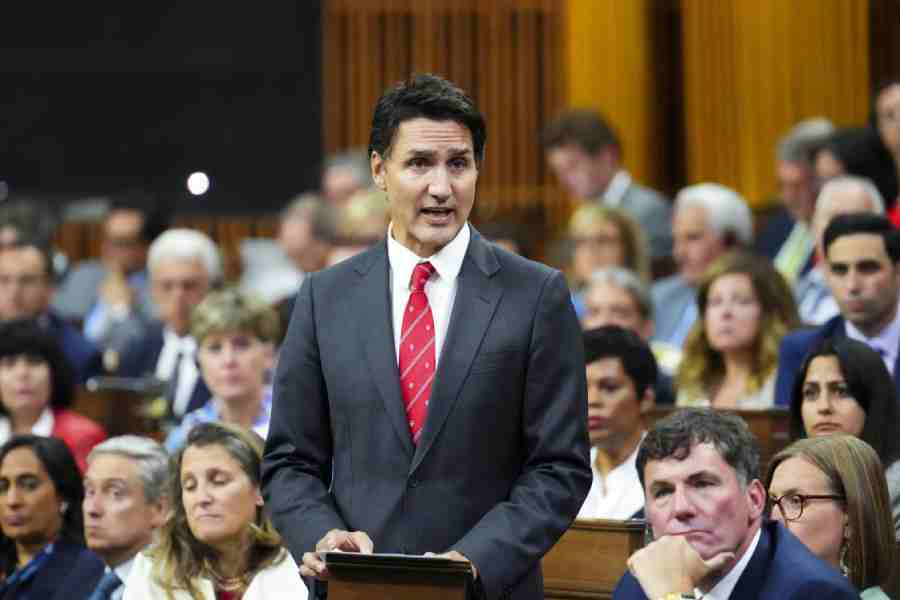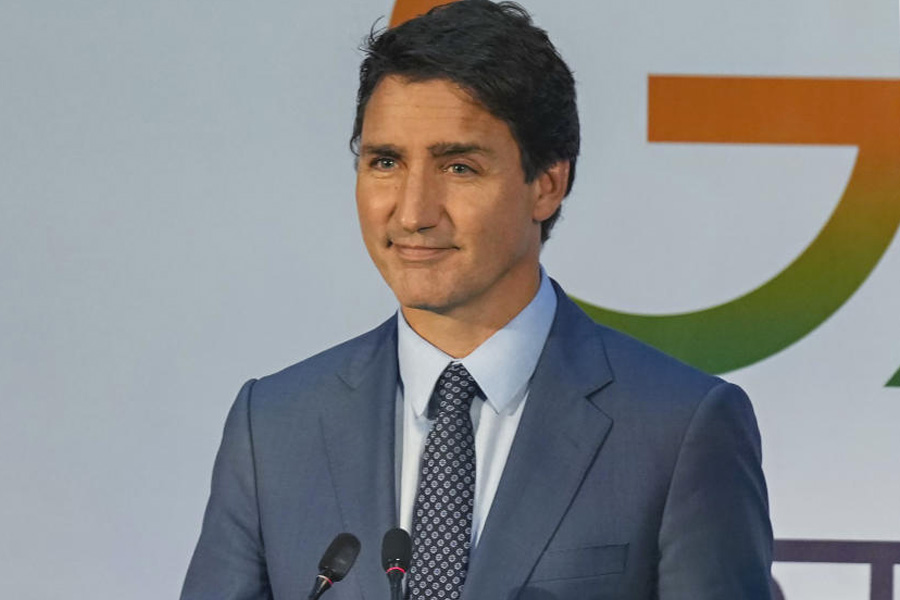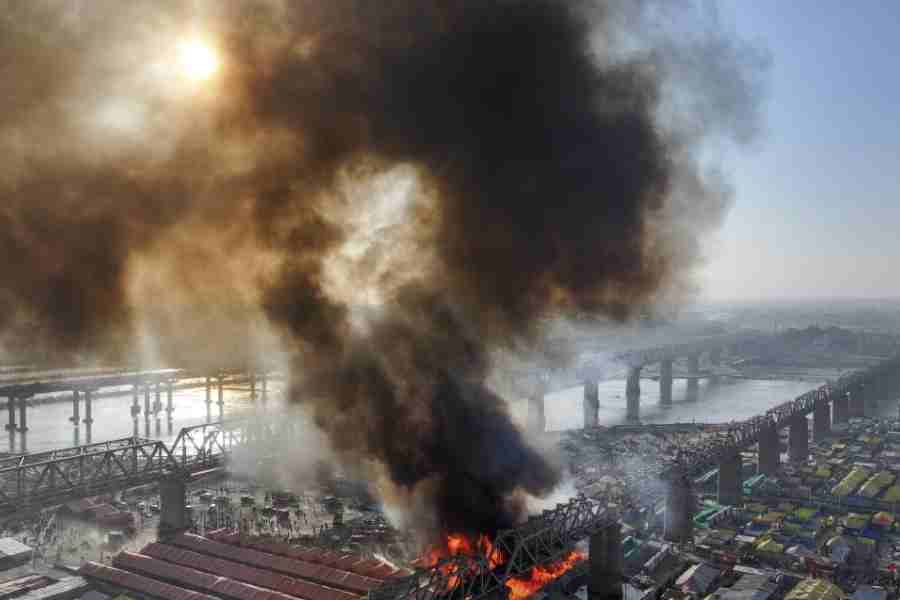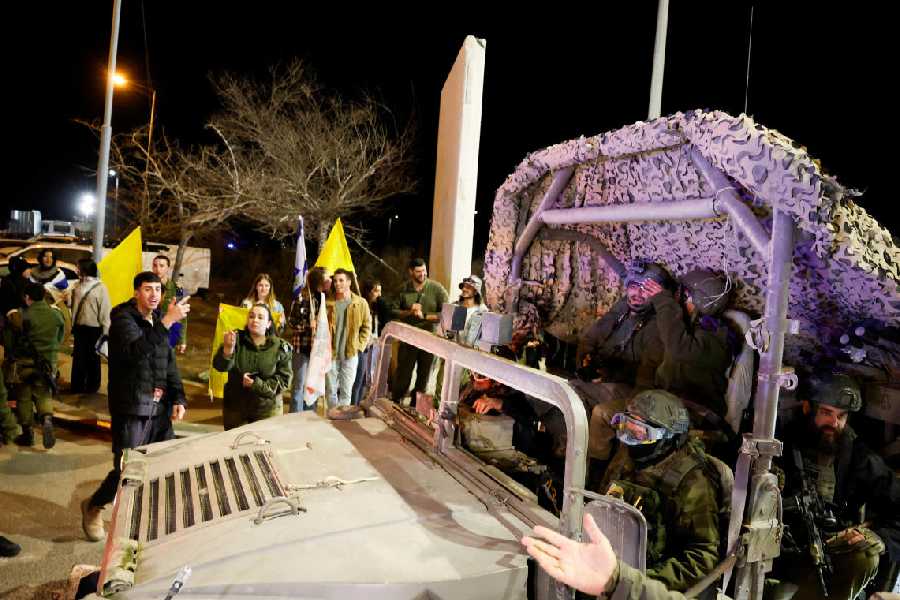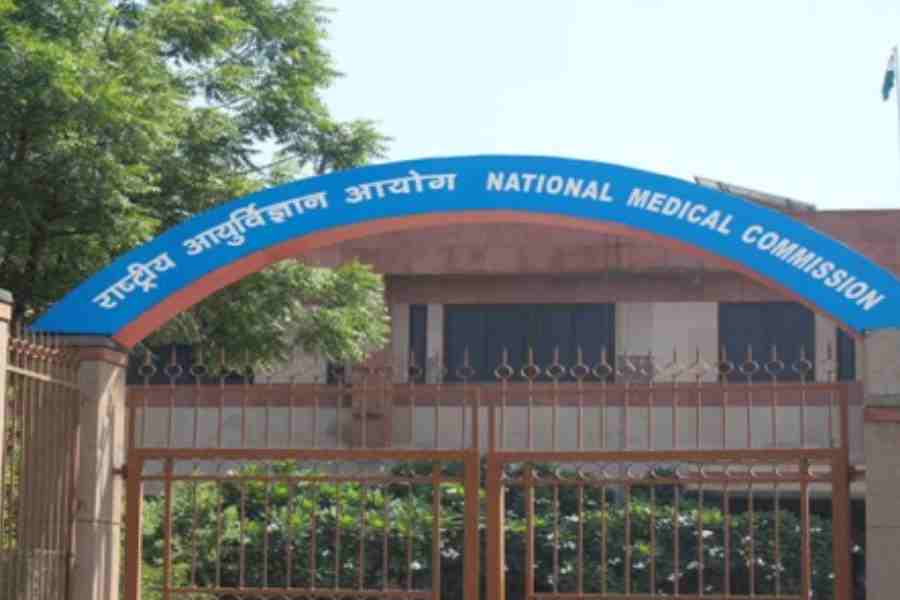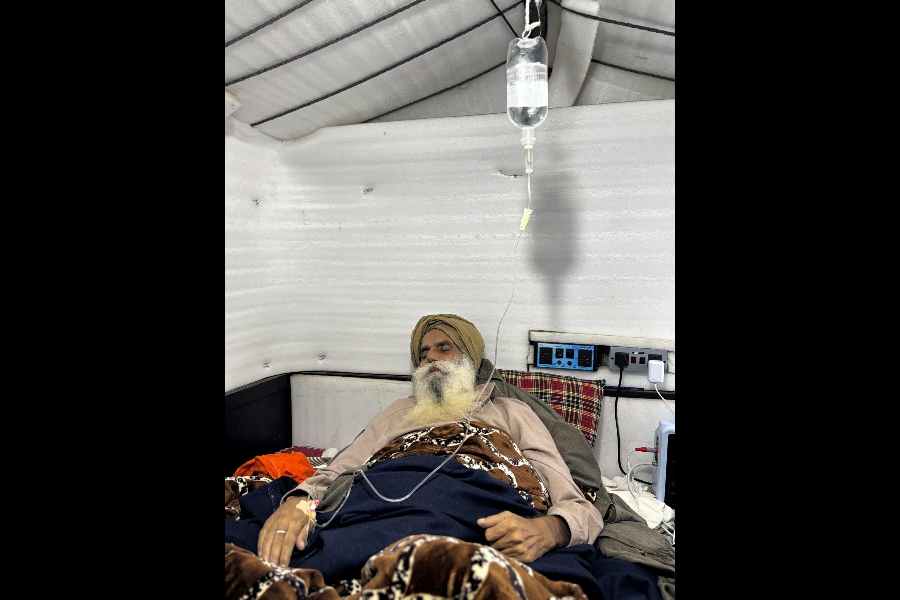Canada’s Prime Minister Justin Trudeau has alleged in his Parliament a potential Indian government role in the assassination of Khalistani separatist Hardeep Singh Nijjar in June, escalating festering tensions and pitchforking bilateral relations to uncharted territory.
The allegation was followed up with reciprocal expulsions of a diplomat each from both capitals.
India rejected Trudeau’s claim as “absurd and motivated”, adding that the “unsubstantiated allegations seek to shift the focus from Khalistani terrorists and extremists, who have been provided shelter in Canada and continue to threaten India’s sovereignty and territorial integrity”.
Trudeau did not provide details of the case in Parliament except for telling the Canadian House of Commons: “Over the past number of weeks Canadian security agencies have been actively pursuing credible allegations of a potential link between agents of the Government of India and the killing of a Canadian citizen, Hardeep Singh Nijjar.”
Prior to making the claim in the House, Trudeau informed the Opposition about what he described as an “extrajudicial operation” and an “unacceptable violation of our sovereignty”.
According to Trudeau, Canada has declared its deep concerns to top intelligence and security officials of the Indian government. “Last week, at the G20, I brought them (up) personally and directly to Prime Minister Modi in no uncertain terms,” he told the House.
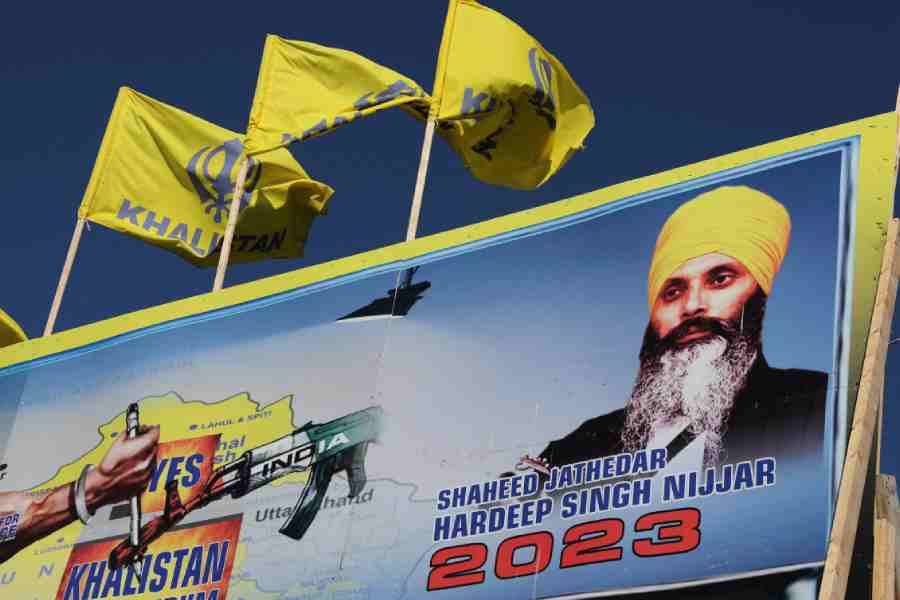
An image of Hardeep Singh Nijjar, who was killed near the Guru Nanak Sikh Gurdwara in June 2023, at Surrey in British Columbia, Canada, on Monday. Sourced by The Telegraph
This was confirmed by the Indian external affairs ministry on Tuesday in its response to Trudeau’s allegations in Parliament, saying the Canadian Prime Minister’s point was “completely rejected”.
The Canadian Premier also said his government had been “working closely and coordinating with our allies on this very serious matter”.
Canada on Monday issued a travel advisory urging its citizens to “exercise a high degree of caution while travelling to India due to the threat of terrorist attacks throughout the country”.
Domestic politics is said to be at play in both countries. There are about 1.4 million Canadians of Indian heritage, many of whom are Sikhs; they include Jagmeet Singh, the leader of the opposition New Democratic Party, which is keeping Trudeau’s minority government in power, The New York Times reported.
BJP officials had sought to paint the “Sikh-dominated farmers’ movement of 2020 and 2021, the biggest challenge to Modi’s decade-long rule, with the same broad ‘secessionist’ brush they have applied to extremist Sikh elements abroad. That has led many analysts to believe that Modi may be stoking Khalistan as a major threat as part of a tried-and-true political and electoral tactic in which he presents himself as the protector of India, particularly its Hindu majority”, the Times added.
Canadian political parties called for calm in light of Trudeau’s disclosure. The immediate response of the Opposition in both countries was to rally around their respective governments.
Trudeau’s announcement in the Canadian House of Commons was followed up by the expulsion of an Indian diplomat. Canadian foreign minister Melanie Joly announced the explusion of the diplomat, identified as the head of intelligence at the High Commission of India.
India responded in like fashion. After rejecting Trudeau’s allegations, India summoned Canadian high commissioner Cameron MacKay on Tuesday morning and informed him about New Delhi’s decision to expel a diplomat — the station head of the Canadian intelligence service — from his mission. The Canadian station head has been given five days to leave the country.
Nijjar, who was the Khalistan Tiger Force chief, was shot down by unknown assailants near a gurdwara in Surrey, British Columbia, in June. Interpol had issued a Red Notice against him in 2016, identifying him as a key conspirator in a bombing at a cinema in Punjab in 2007. Following his murder, Khalistani supporters had put up posters of Indian diplomats based in Canada and the UK and projected them as “Faces of Shaheed Nijjar’s Killers”, drawing a sharp response from India.
Western response
The Associated Press quoted Joly as saying that Trudeau has already discussed the matter with US President Joe Biden and British Prime Minister Rishi Sunak. The Canadian Broadcasting Corporation said Trudeau had also briefed French President Emmanuel Macron.
Joly was expected to raise the issue with her peers at the G7 on Monday evening in New York ahead of the United Nations General Assembly. Probably as a consequence, White House National Security Council spokesperson Adrienne Watson expressed concern over the development. “We are deeply concerned about the allegations referenced by Prime Minister Trudeau. We remain in regular contact with our Canadian partners. It is critical that Canada’s investigation proceed and the perpetrators be brought to justice.”
In an official statement, the British government spokesperson said: “We are in close touch with our Canadian partners about these serious allegations. It would be inappropriate to comment further during the ongoing investigation by the Canadian authorities.”
The Special Broadcasting Service of Australia quoted a spokesperson for foreign minister Penny Wong as saying that the country was “deeply concerned” by allegations the Indian government may have been behind the murder of a Sikh activist in Canada, adding it had raised those concerns at “senior levels”.
India-Canada relations have been strained for years over Ottawa’s perceived Nelson’s eye towards India’s sensitivities over Khalistan-related activities in Canada, particularly since Trudeau assumed office in 2015. Add to it his comments on the farmers’ agitation when, too, he was seen as pandering to his Punjabi constituency in Canada.
Earlier this month, Canada called for a pause to ongoing trade talks days before Trudeau was to fly to India for the G20 summit. At G20, he was apparently given an earful for not addressing India’s concerns regarding Khalistani separatist activities on Canadian soil.
Following his belated return to Canada after being stranded in New Delhi for two days owing to aircraft trouble, Ottawa cancelled a trade mission to India which was scheduled for October. Commerce minister Piyush Goyal later told Firstpost in an interview that “we have given it (trade talks) a pause to see how we need to take it forward”.
“There are several reasons we need to make sure that geopolitically and economically, we are all on the same page… we have had certain issues which are of serious concern. They have been highlighted in the bilateral meeting that Prime Minister Narendra Modi had with Canadian PM Justin Trudeau, and we are hoping for resolution of some of these issues before we take it forward.”

